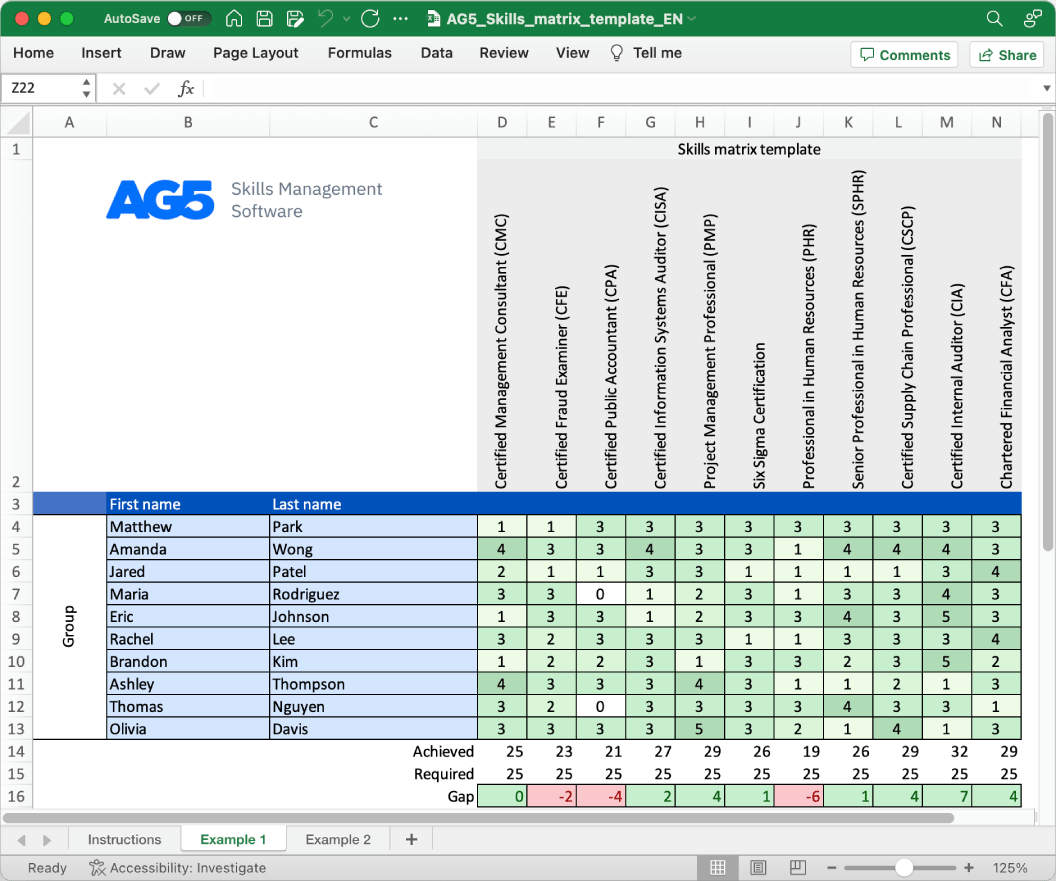Regulatory compliance skills matrix template
A skills matrix template is a tool regulatory compliance teams can use to effectively manage and assess their skills and knowledge.
Download your free template here

Overview Copied
With our free regulatory compliance skills matrix template, you will receive a clear overview of the skills that are present in your organization, as well as those that are missing. Using this information, you can develop and implement a plan to ensure that your employees’ skills are up to date, comprehensive, compliant, and ready for the future.
- Certified Regulatory Affairs Professional (RAC)
- Certified in Healthcare Compliance (CHC)
- Certified Regulatory Compliance Manager (CRCM)
- Certified Regulatory and Compliance Professional (CRCP)
- Certified Compliance and Regulatory Professional (CCRP)
- Certified Quality Auditor - Regulatory Affairs (CQA-RA)
- Certified Regulatory Compliance Professional (CRCP)
- Certified Clinical Research Professional (CCRP)
- Certified in Risk and Compliance Management (CRCM)
- Certified Professional in Medical Device Regulatory Affairs (CMDRA)
- Certified Professional in Pharmaceutical GMP (CPGMP)
- Certified in Investment Performance Measurement (CIPM)
- Certified Compliance and Ethics Professional (CCEP)
- Certified Professional in Healthcare Risk Management (CPHRM)
- Certified Risk and Compliance Management Professional (CRCMP)
- Certified Quality Auditor - Medical Devices (CQA-MD)
- Certified Information Privacy Professional - US (CIPP/US)
- Certified Regulatory Compliance Manager - Mortgage (CRCM-M)
- Certified Compliance and Ethics Professional - International (CCEP-I)
- Certified Financial Crimes Specialist (CFCS)
Benefits Copied
Skills management software is crucial for regulatory compliance as it allows organizations to manage and monitor the skills and certifications required to meet regulatory obligations. It ensures that employees possess the necessary expertise and qualifications to comply with industry-specific regulations and standards.
Author Copied
Revisions Copied
Tired of managing skills in Excel?
Say goodbye to Excel matrices. Start using AG5’s plug and play skill matrix software.
Recognized by G2 for Excellence in Skills Management

